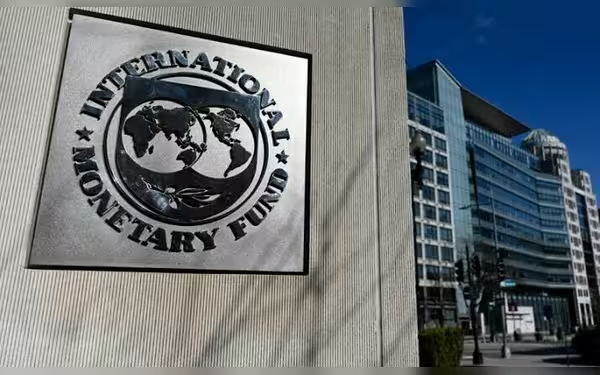Saturday, November 16, 2024 07:35 PM
IMF Urges Pakistan to Reassess Tax Breaks for Agriculture and Textile Sectors
- IMF calls for ending tax breaks in agriculture.
- Tax policies hinder economic diversification in Pakistan.
- Reallocation of resources needed for sustainable growth.
 Image Credits: dawn.com
Image Credits: dawn.comIMF urges Pakistan to end tax breaks for agriculture and textile sectors to enhance economic resilience and diversification.
The International Monetary Fund (IMF) has recently urged the Pakistani government to reconsider its tax policies, particularly those that provide breaks to the agriculture and textile sectors. This recommendation comes at a time when the country is facing significant economic challenges, and the need for a more diversified export portfolio has never been more critical.
Pakistan's economy has long been heavily reliant on agriculture and textiles, with products such as cotton yarn, rice, woven fabrics, beef, and leather apparel making up a substantial portion of its exports. However, this reliance has created a situation where the country struggles to shift its resources towards more technologically advanced and complex products. The IMF's statement highlights that this reallocation is hindered by various microeconomic distortions.
Among these distortions are public procurement practices for agricultural goods, which can lead to inefficiencies in the market. Additionally, price controls on raw materials and fiscal incentives for low productivity sectors further complicate the situation. The IMF's observations suggest that these factors not only stifle innovation but also prevent the economy from evolving in a way that could lead to sustainable growth.
Ending tax breaks for the agriculture and textile sectors could potentially free up resources and encourage investment in more advanced industries. This shift could help Pakistan diversify its economy, making it less vulnerable to fluctuations in global commodity prices and enhancing its overall economic resilience.
While the call from the IMF may seem stringent, it presents an opportunity for Pakistan to rethink its economic strategies. By addressing the existing distortions and fostering a more competitive environment, the country could pave the way for a brighter economic future. It is essential for policymakers to weigh the benefits of such changes against the immediate impacts on the sectors that have traditionally supported the economy. Ultimately, a balanced approach could lead to a more robust and sustainable economic landscape for Pakistan.













